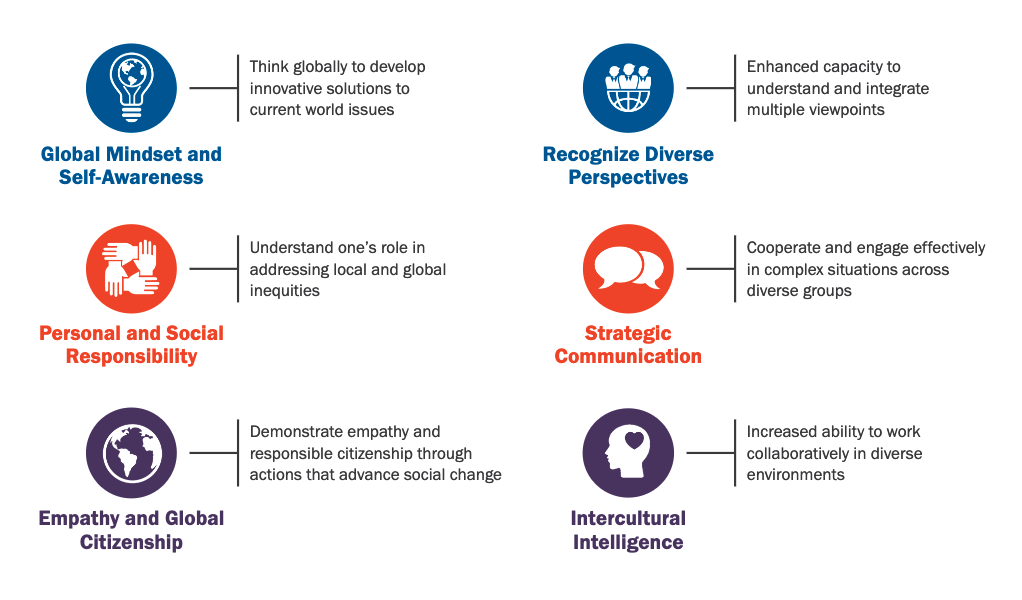Your program curriculum is designed to ensure graduates acquire the essential skills, knowledge, and attitudes appropriate and relevant to both the needs of students and employers.
Program Vocational Learning Outcomes
Program vocational learning outcomes describe what graduates of the program have demonstrated they can do with the knowledge and skills they have achieved during their studies. The outcomes are closely tied to the needs of the workplace. Through assessment (e.g., assignments and tests), students verify their ability to reliably perform these outcomes before graduating.
The program vocational learning outcomes for the Community Service and Child Studies Foundations program are
- Discuss the roles, responsibilities, career opportunities, academic and personal requirements for success in the Community Services and Child Studies field.
- Apply culturally sensitive communication and interpersonal skills to support team functioning in academic and professional settings with the ability to engage in self-reflection.
- Explain major theoretical models of behaviour in alignment with professional deportment, code of conduct and ethics of the different Community Service and Child Studies professions.
- Apply the appropriate digital communication tools and technology through interpersonal communication suitable for the Community Service and Child Studies professions.
- Select the Community Services and Child Studies field best suited to personal and career interest.
- Explain how academic strength, needs and personal health factors affect success and wellness in a college environment.
- Utilize written and verbal communication skills specific to the Community Services and Child Studies field.
Essential Employability Skills Outcomes
Essential Employable Skills (EES) are skills that, regardless of a student’s program or discipline, are critical for success in the workplace, in day-to-day living, and for lifelong learning. Graduates will reliably demonstrate abilities in six skill categories:
Global Citizenship and Equity Learning Outcomes
There are six Global Citizenship and Equity (GCE) learning outcomes integrated into Diploma and Advanced Diploma programs as a component of Centennial’s Signature Learning Experience (SLE). The SLE reflects the College’s promise to provide students with a distinctive and inclusive educational experience that builds on a foundation of global citizenship, equity, and social justice. Certificate and Graduate Certificates also include at least two GCE learning outcomes. The GCE learning outcomes are:
- Identify one’s role and responsibilities as a global citizen in personal and professional life.
- Identify beliefs, values and behaviours that form individual and community identities and the basis for respectful relationships.
- Analyze issues of equity at the personal, professional, and global level.
- Analyze the use of the world’s resources to achieve sustainability and equitable distribution at the personal, professional, and global level.
- Identify and challenge unjust practices in local and global systems.
- Support personal and social responsibility initiatives at the local, national, and global level.
Global Skills Portfolio
As a component of the SLE, Diploma and Advanced Diploma program students will complete the Global Skills Portfolio. Building the Global Skills Portfolio is a process of documenting your GCE learning. Each item selected for inclusion in the portfolio demonstrates growth and understanding of Global Citizenship and Equity within your program of study.

Students are encouraged to develop their Global Skills Portfolio beginning in their first semester. You will add artifacts from coursework and accompanying reflections as well as artifacts arising from co-curricular activities, volunteering, etc. to your portfolio as you progress through the program. You are encouraged to use the ePortfolio tools available on eCentennial, as well as to develop an online professional portfolio presence through LinkedIn and/or other personal websites/blogs.
Curriculum Frameworks
Students will complete courses in Communications, Work Places of Canada, Career Exploration and Professionalism, Fundamentals for Success and Building Interpersonal Reflective and Relational Skills. Upon successful completion of the 2-semester program, students will be eligible to transfer, with up to 2 or 3 credits, to any one of the nine qualifying Community and Child Studies diploma at Centennial College; listed below.
- Addiction and Mental Health Worker
- Child and Youth Care
- Community Development Work
- Community and Justice Services
- Developmental Services Worker
- Early Childhood Education
- Police Foundations
- Recreation and Leisure Services
- Social Service Worker

